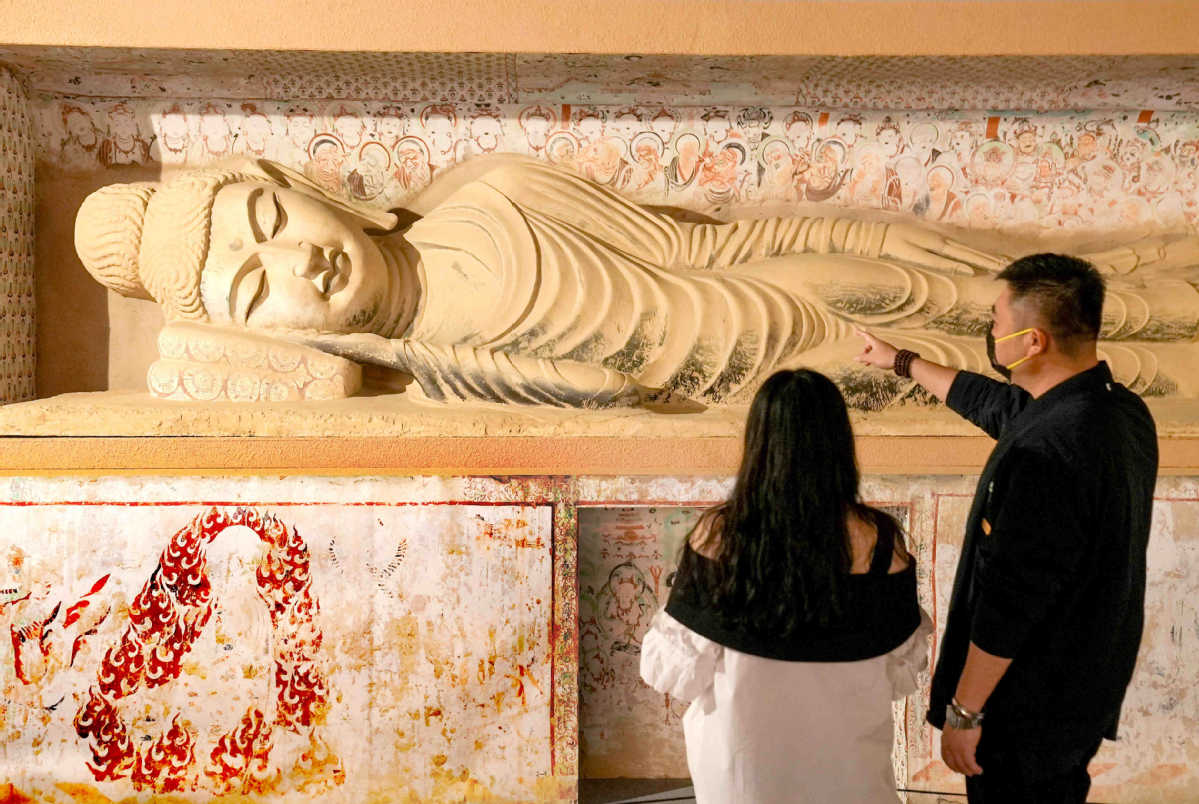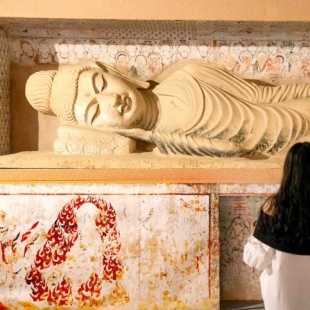More states join key Asian alliance, pledge to protect cultural heritage


More countries have joined a key Asian framework on collaborative protection of cultural heritage across the continent, echoing a widely recognized initiative to promote dialogue among various civilizations.
Azerbaijan, Myanmar and Sri Lanka became the new member states of the Alliance for Cultural Heritage in Asia, or the ACHA, during its council meeting on Monday, which was hosted by China in Xi'an, capital of Shaanxi province. Bangladesh, Singapore, Tajikistan, Uzbekistan and Vietnam became the ACHA's observer states.
The alliance now has 13 member states and five observers.
In 2021, during the Asian Dialogue for Cultural Heritage Conservation hosted by China via online platforms, 10 countries — including China — jointly initiated the ACHA.
The other nine founding members are Armenia, Cambodia, the Democratic People's Republic of Korea, Iran, Kyrgyzstan, Pakistan, Syria, the United Arab Emirates and Yemen.
"We shall work together to further strengthen the long-term conservation of cultural heritage across Asia," said U Ko Ko, Myanmar's minister of religious affairs and culture, at Monday's council meeting.
The goal will be achieved with the development of socioeconomic, cultural and environmental protection, and by fostering people-to-people communication, he said.
"I do hope this alliance will facilitate the promotion of Asian civilizations, and build 'a community with a shared future' for our Asia," he added.
During the meeting, Kong Vireak, Cambodia's undersecretary of state for culture and fine arts, was elected as the first secretary-general of the ACHA. "I am very confident that together we will achieve greater significant outcomes in the alliance's core mission," Kong said.
He said that exchanges and cooperation among members are likely to focus on areas such as training to stay abreast of new techniques for the protection and management of monuments and sites, and for joint archaeological excavations and research.
Such efforts can help prevent or mitigate disasters, aid restoration of cultural heritage sites in the aftermath of disasters, help prevent illicit import, export and transfer of ownership of cultural property, and facilitate the return and restitution of lost items, Kong added.
Statistics from UNESCO show that about 40 percent of all the endangered World Heritage Sites are in Asia, and international cooperation is thus imperative for their protection.
The alliance has already drawn up a concrete cooperation road map. From 2023 to 2024, the ACHA will support member states to carry out joint archaeological research programs and nomination of World Heritage Sites along the ancient Silk Road and Maritime Silk Road, according to Li Liusan, director of China Academy of Cultural Heritage and executive secretary-general of the ACHA.
Other key projects on the agenda include post-quake restoration of cultural heritage sites in Turkiye and Syria, international conferences on protection of grottoes and wooden structures, exchanges on practices of traditional village protection, joint museum exhibitions and youth forums on cultural heritage.
Some past attempts have provided references for the future, Kong noted. For example, China — as a member of the international community under UNESCO — has been actively involved in the restoration of Angkor and Preah Vihear, both World Heritage Sites in Cambodia, he said.
China and India are now co-chairs of the international coordination committee for the Preah Vihear conservation project.
In Sri Lanka, a series of joint research projects with China is underway, with the focus on ancient Chinese mariner Zheng He from the Ming Dynasty (1368-1644) and the ancient Maritime Silk Road.
"We hope to organize more collaborative projects with China and other countries in the future," said Vidura Wickramanayaka, Sri Lanka's minister of Buddhasasana, religious and cultural affairs.
"This important conference is identified as one such milestone that leads toward a strong cultural collaboration among the member countries," she said.
The council meeting in Xi'an was part of the general assembly of ACHA, which will run through Wednesday.
This is the first large-scale, high-level international conference organized offline since the creation of the alliance.




































